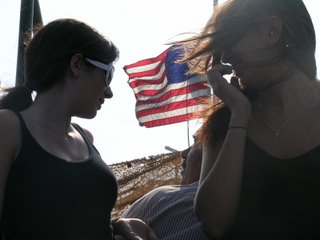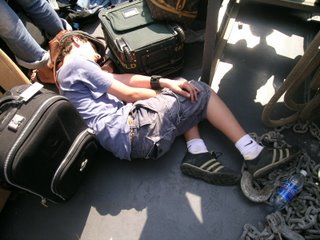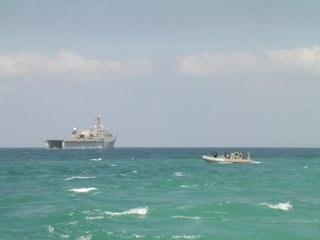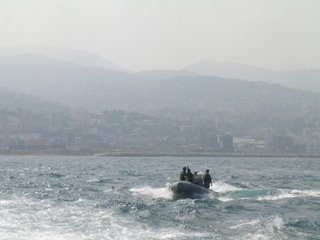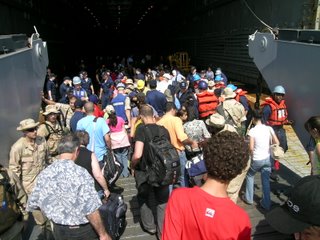The cafes are full again, with Al Manar or Al Jazeera covering the...atrocity. People seem engrossed by the news for the first time this week, a period characterized largely by quiet regrouping, watching and waiting. Aside from the occasional rumble, Beirut is relatively quiet now facing only the task of caring for the (estimated) 500-800,000 displaced people living in or around the city in public parks or schoolbuildings converted to camps. I'm involved in the humanitarian relief effort and will speak more to my experience at the end of the post. Before I go any further, if you want to help me and help what I consider to be the most intelligent and important "aid" agency on the ground right now, go here: Sustainable Democracy Center. (The content of that website will be updated in a couple of days, but the features and functions still work fine. Below, too, I talk more about what the SDC is all about - if you have any ?s, just ask)
While diplomats scurry around the world (me to Talal: "Secretary Rice was here, right? While I was gone?" Talal: "Rice, rice, eating Rice, doing nothing, just eating Rice"), Israel continues to pound the south, Hizbullah vows not to withdraw and a continuous stream of refugees fill Beirut and its out suburbs the continued questions (Is this going to end? When will this end? How will this end? What happens next?) just sit on the stove.
At least they did, until this morning when the people of Beirut officially started choosing sides and taking matters into their own hands. Here's the location of the UN Building-it's the larger of the two in the complex, the other being the news bureau building containing CNN, BBC, Washington Post, etc. Normally playing the victim, parts of the fractured Lebanese government have begun to shift if not towards Hezbollah at least against Israel and demand some real action from the United States.
The news coverage of this morning's events is incredibly graphic when compared to television coverage in the United States. I sat this afternoon and watched images of crushed, dead bodies being excavated from the rubble, pictures of children whose bodies had been broken being carried in the arms of weeping civilians.
Things have changed. People are officially angry and acting on it.
Me (talking to person sitting next to me in Internet Cafe): 'What percentage of the Lebanese population is with Hizbullah?"
NetCafeGuy (late 20s, angry): "Before the war, you had maybe 20, 30 percent. At most. All my friends, they are Christians, they are in the Lebanese Guard - it's a Christian Military, mostly. But now, they are angry. We are all angry. You cannot do this - you do a blockade, you do it to an entire people. You tell people to evacuate but you bomb the roads? They have nowhere to go. They are trapped and you kill them? This is women and children. You do not kill women and children. You know, they call Hizbullah terrorist group - terrorist. Hizbullah, never before this did they strike the civilians, they do not take civilian targets...this is terrorism."
I can only hope that Bush and Condi's long term plan for the region
- (aside: they tried this once here before. It was called the Roadmap and it failed. That and the chaos in Iraq have me worried as to the actual nature of the plan, as to the priorities the administration will pursue. It's clear that US leadership is struggling with how to deal with non-state actors) -
involves more than simply disarming Hizbullah and creating an internationally monitored zone. I hope it does something for the Lebanese people, hope it can set the stage for actual strength through unification. This would mean involving civil society, of course.
The reason why people rush to Hizbullah in times of strife is because the government here is so weak, weak for two reasons. 1) built to ensure representation of every minority group in the country, there is infighting, refusal to give up power and flagrant bribery and corruption and 2) the people themselves, initially and continuously divided, feed this frustrated system. More about this in coming posts.
Ironically, although we have yet to see the cease-fire plan that the US is now trying to get on the table, regardless of the content of that plan I might have already gotten my wish. I'm sure it's not the US's intent at this stage but from what I've seen happening on the streets and through my conversations with people, the Israeli/US complex and its actions have, as of this morning, actually served to bring the Lebanese together under one banner. An impressive achievement. It's unfortunate that this is just another reason why yet another community in the Middle East will hold hate and anger against the United States and Israel for generations to come.
People in the US often wonder why it is that certain elements of the Arab community hate the US so much. After 9/11 it was a popular topic on both sides of the divide.. Bush will say with a swagger that 'the Terrorists' hate our freedom. Again, I'd assert that from here is seems that the people only hate our freedom from accountability. Here, now, officially, they look forward to the day when the US will be held accountable for the deaths of hundreds, when finally the facade of strength on the Administrations' faces will crack and the full realization that they stood by while innocents perished (something they could have prevented with a phone call). Mark this day - it's just one more little thing that won't go forgotten.
There's a dark omen over today, a feeling that not only did Rice and Bush stand passively by, allowing Israel to continue (their thinking: Hezbollah has to be either destroyed or totally embarrassed) but that by waiting, by not intervening they actually played into Hizbullah's hand. Israel's initial goal was to get it's soldiers back; when Hezbollah announced all out war, Israel had to respond in kind. The goals changed as chests were puffed. It became first a 10, 14, 20ish mile security zone and behind closed doors became about saving face. Israel needs to at the very least seem the victor here...my guess is that today their reaching to achieve that difficult task just pushed them beyond sane thought. And they killed 50 people.
The question on everyone's mind here was (for the past week): why? Why, if we're going to work towards peace, can we not do it while in ceasefire? Why can we not give even just a three day window to let aid to the south and let the innocents trapped in the fighting actually flee?
Again, they are trying here to break the back of Hizbullah, but to go back to how I started this: I am watching those who were once against Hizbullah here in the country now rally to their side. I am watching a failure of this administration unfold before my eyes, am watching them run up the debt that my generation will probably pay in blood in one way or another.
Talal: "Give US the guns!"
Me: "You should ask - write Bush a letter."
Talal: "Yes, give them to us - do not give them Israel. We can make Lebanon strong, we can protect the people, we can say to Hizbullah you can come, you can join the army but if you are looking to destroy Israel then you can go and live in Gaza or where you want. But give us the guns!"
That was last night. Talal, the Syrian and I are the have become the main figures within the hostel. There are a few other characters in and out. There are the Bulgarians - two shifty documentary filmmakers who never speak and who have pictures of Nasrallah taped to their cameras. It's not a bad idea as anyone with a camera even in the southern suburbs of Beirut will undoubtedly be stopped by a plainclothes member of Hezbollah and interrogated in the backseat of a car, in an alley, in a sympathetic safehouse...
This has happened already to two of the people staying in the Hostel - most recently to D [Canadian of Chinese decent, photographer with Lonely Planet, world traveler, 19 years old, currently battling vicious parasite which causes him to eat about twice as much as he normally does]. He returned from the suburbs late one night and, over Schawarma sandwiches, told me the story of being pulled into an alley and held and questioned threateningly; the next day, he left the Hostel with some gear for shooting more. We haven't seen him since. The Syrian gave up waiting on him, packed his things into his backpack and hung it from the coat rack in the room where it still hangs.
Too, there are M and J, both Lebanese. J and I have no idea what each other are saying, so we've taken to drawing symbols on my note pad in order to communicate ideas. It took me 10 minutes last night to figure that he wanted to know if I had the remote control to the television. M and J, both in their early twenties, work security at night, fish in the mornings by the Corniche (I saw them there today as I was running) and are rarely apart when they're in the hostel, normally wrestling each other to the ground at the drop of the hat or smoking cigarettes on the balcony.
M (to me): "You are an American."
Me: "I think I'm the last one."
M: "Where are you from?"
Me: "Boston."
M: "It's a beautiful place. I have seen it on television."
Me: "Why are you staying here in Talal's? Are you from the South?"
M: "No, no. I am here to work. I...I have many places. Many places around here. Many family live around here."
Me: "So...you come here...why are you..."
M: "My friend. I like to live the most with my friend. We stay here for two weeks or so. No family."
Displacement comes in all forms.
Back to Talal (this morning): "They do not understand this. They do not understand what they are doing. Violence - you do violence, you do damage - you make more violence. This is how this goes. (slamming his fist on the couch). This is how this happens. And now you think you can f*** the people? The Lebanese people? We will not take this. We will not - and we have something that Israel and Bush do not have - we have God."
(me: eyebrows go up - first time Talal has said a thing about God): "I understand. Just as long as you know that there are many Americans who do not like this, who...who do not want this, who want something else..."
Talal: "Yes, yes - go home to America, you go and kill that f****** b****** Bush"
Me: "Violence makes violence."
Talal: "(incomprehensible sound of frustration)"
In other, better news:
Earlier this week, I set out to figure out what was happening on the ground with the relief effort. You get all sorts of news reports from different agencies giving varying accounts as to the exact number of displaced living in or around Beirut; I thought that by stopping by an organization that had to keep close tabs on the numbers I would be able to navigate better. I went to the RedCross.
RC: "It is...oh, it's probably now about 500,000...at least. And probably much more."
The Red Cross rep said this with a lot of sighing. There were only three people left in the building, which had helmets, uniforms and just an array of items strewn about the commonspace in the old building that housed the outfit. You got the idea that things hadn't let up for the crew in weeks. They were exhausted but generally good natured. On my notebook, RC took the time to draw me a map of the "safety zone" where hundreds of thousands were now finding places to sleep and sit out the conflict. It was an enormous area of land stretching down from Beirut.

All estimates point to about 100,000 staying within the boundaries of Beirut itself - that was last week. Now, I'd guess that that number has tripled. The first international agencies to get into Lebanon have directed most of the aid here to those in the city.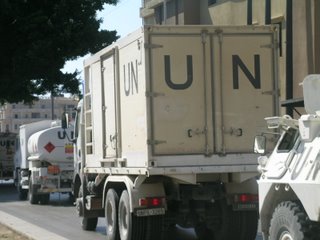
For the hundreds of thousands still trapped in the South, there is nothing.
RC: "They will be different soon. We like these ones, we like the - what is this?"
Me: "Jumpsuit?"
RC: "We like the jump suit. They will give us new ones in a couple of weeks, with a jacket and with pants. These, though, we like these. This is our image from the Civil War, the jumpsuits with the big cross on the back."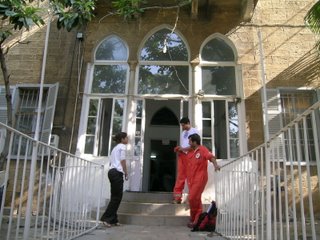

Aid is a fulltime activity around the city. The youth group that I had signed up to volunteer with before I evacuated has picked up its pace and each time I visit the NetCafe that they've made their headquarters they are either moving in or moving out mattresses, food or clothing.
Selim (via phone): "Where are you?"
Me: "I'm at the RedCross building near your headquarters."
Selim: "We've moved, we're not there anymore"
Me: "Where are you, can you give me directions?"
Selim: "We're in the park. Go outside - a man wearing a green shirt will be by to pick you up in 3 minutes. Go outside."
Selim, an Ashoka fellow, runs the Sustainable Democracy Center in Beirut - a civil society organization aimed at (among other things) growing and strengthening civic participation and awareness in Lebanon. Who better to call and work with right now?
The SDC moved from it's former offices in the west of Beirut into an abandoned building close to the heart of the city - directly across from Al Sanayeh Park. The park is now "home" to 100s of people from the south. (I wasn't allowed to take pictures inside the park itself, just yet. The coalition of NGOs running the relief operation are adamant about preserving the dignity of the displaced, not make the situation into some sort of zoo attraction). In spite of getting very little sleep for days, Selim was jumping around, issuing orders, talking with reporters. He was in his element. The idea for Selim is to go beyond physical aid to people and to provide constructive mental and emotional relief to the children. Given that Lebanese families are large (averaging just under 7 people), this is a sizeable task. His team of volunteers run a range of activities within 14 of the schools and parks of Beirut, all aimed at helping the children to understand this crisis, understand their role, plant the seed for responsible civic participation down the line and help vent the fear and frustration that will lead to violence later in life. After all of my calls, his program seemed one of a kind, seemed to be the only one still focused on winning the battle of the hearts and minds from the inside, on fighting the urge to fight by strengthening the skills of thinking and empathy. I signed on.
In spite of getting very little sleep for days, Selim was jumping around, issuing orders, talking with reporters. He was in his element. The idea for Selim is to go beyond physical aid to people and to provide constructive mental and emotional relief to the children. Given that Lebanese families are large (averaging just under 7 people), this is a sizeable task. His team of volunteers run a range of activities within 14 of the schools and parks of Beirut, all aimed at helping the children to understand this crisis, understand their role, plant the seed for responsible civic participation down the line and help vent the fear and frustration that will lead to violence later in life. After all of my calls, his program seemed one of a kind, seemed to be the only one still focused on winning the battle of the hearts and minds from the inside, on fighting the urge to fight by strengthening the skills of thinking and empathy. I signed on.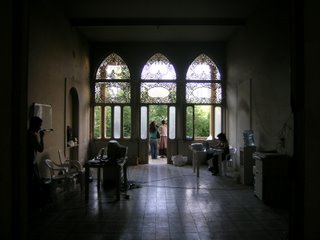
The SDC crew and the other NGOs working out of the abandoned old building across from the park move quickly. From this building (once belonging to the notable Salam family that left during the civil war), food is prepared and rationed to the people who come at all hours, teams meet and prep and plan long into the night - it's civil society at its best.
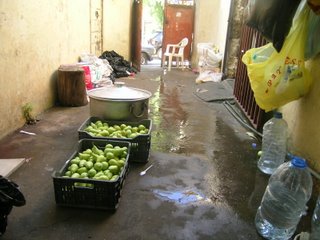
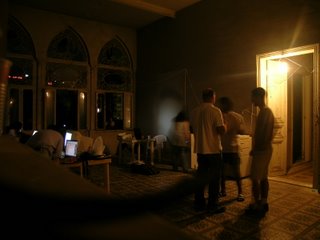
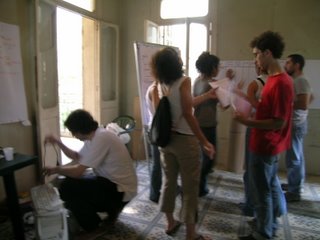



Having no Arabic, I've been put in charge of communication with outside partners. I've been penning emergency funding proposals, website copy (the website will be more professionally established an updated in the coming days) and, of course, contacting US media.
When I wandered back into the media building cap in hand I saw a few old friends. The Washington Post reporter was on his way down to the south again.
WPR: "Oh my."
Me: "Look who's back."
WPR: "Wow..."
Me: "Hey, what contacts do you have that would want a great human interest piece about something that's happening in Lebanon that's actually good for a change?"
That was the pitch for all of them. CNN finally bit, sort of... "We would just love to do this story. We never can really plan as you never know what will happen day to day, but Nic Robertson will be calling you probably Monday morning."
Me: "That's great; let me give you Selim's phone number and that way we can just- "
Producer: "We love the NGO story, we love what you're doing, but we're really interested not only in the NGO but Nic will really want to talk to you, talk to you about all you told me, about coming back, about why you came back..."
Future of Lebanese civil society vs. dude that got on a boat. Oh, CNN...at least I can play it towards Selim and hopefully get the SDC some airtime.
The ports are all dark at night now that the International presence is gone. The Orient Queen made one last trip into town last Friday to retrieve the remaining few that had to really struggle to make it to Beirut. Lebanese soldiers have resumed sitting in the alleyways across from the port, tanks parked in the shadows waiting to peak out and get a shot at a warship. There is hope that they won't get the chance.


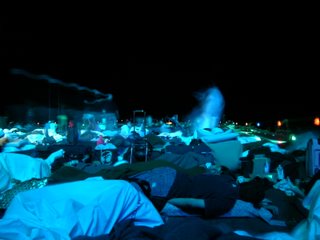
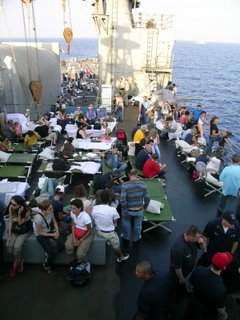

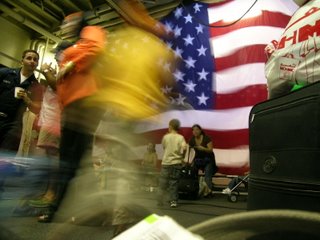
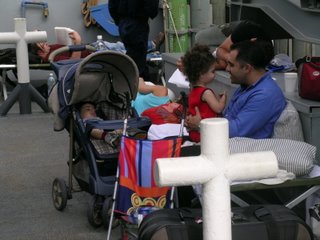

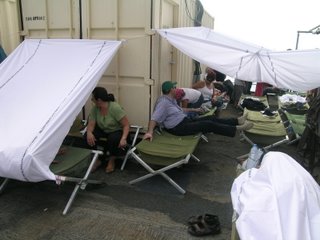
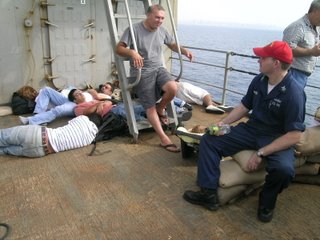
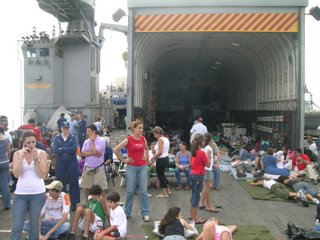
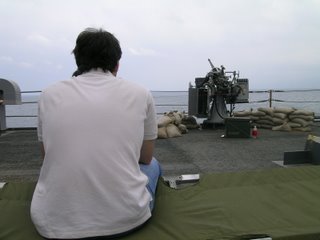 You have watched from a distance as the tension has receded with the coastline, watched as teenage Lebanese/American girls flirt with American/American navy personnel and marines...who enjoyed the hell out of it.
You have watched from a distance as the tension has receded with the coastline, watched as teenage Lebanese/American girls flirt with American/American navy personnel and marines...who enjoyed the hell out of it. 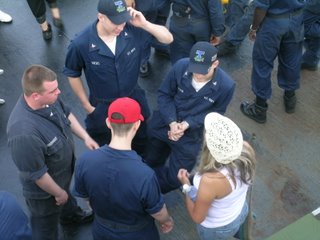 You have watched elderly men quip about the old days when they were soldiers and ask probing questions to the young, bored marines about the operation.
You have watched elderly men quip about the old days when they were soldiers and ask probing questions to the young, bored marines about the operation. 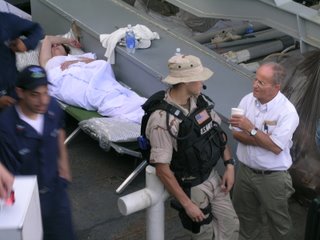 You learn that the ship you are on normally carries 274 crewmembers - today, there are almost 2000 on board. You learn that the ship is 40 ft across but lose the length as you are mentally converting ft to meters. You see it in your head as metres.
You learn that the ship you are on normally carries 274 crewmembers - today, there are almost 2000 on board. You learn that the ship is 40 ft across but lose the length as you are mentally converting ft to meters. You see it in your head as metres.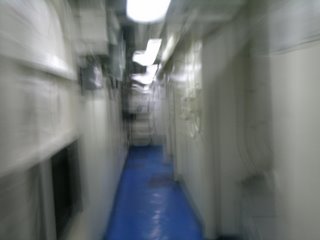 The screaming mothers/children/fathers have collapsed on every conceivable surface. You ask a crewmember where you should sleep, hoping that you'll be able to sleep. "Man, s***, I don't know. Look around, anywhere you know? How bout there?" He points to a dark bunk, the lowest on a stack of three. You thank him, get down on your hands and knees and crawl in. You rest your head on a pillow and find a squirming baby in its place. You start - it's pitch black, you can't see where its head is but you whisper "Sorry baby" and crawl out and wander to the kitchen.
The screaming mothers/children/fathers have collapsed on every conceivable surface. You ask a crewmember where you should sleep, hoping that you'll be able to sleep. "Man, s***, I don't know. Look around, anywhere you know? How bout there?" He points to a dark bunk, the lowest on a stack of three. You thank him, get down on your hands and knees and crawl in. You rest your head on a pillow and find a squirming baby in its place. You start - it's pitch black, you can't see where its head is but you whisper "Sorry baby" and crawl out and wander to the kitchen.  You sit and try and eat the dinner - mashed potatoes from a box and processed beefstake.
You sit and try and eat the dinner - mashed potatoes from a box and processed beefstake. 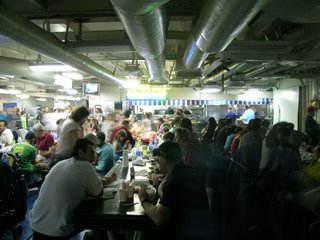 You are thankful for it and could swear you are starving, but you can't eat. Something is officially wrong. Still, you push in a cookie. You have to eat, you tell yourself.
You are thankful for it and could swear you are starving, but you can't eat. Something is officially wrong. Still, you push in a cookie. You have to eat, you tell yourself. 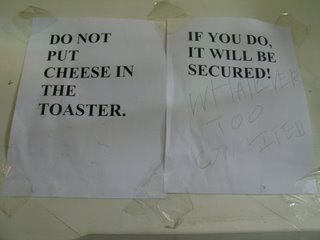
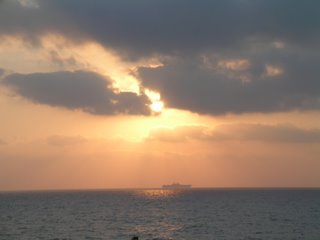
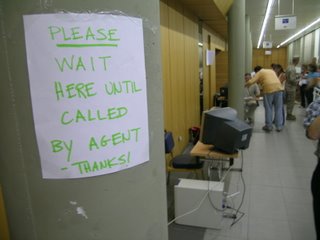
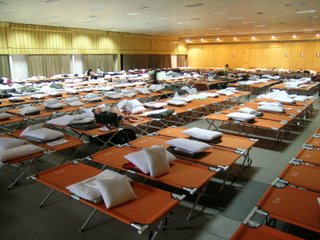
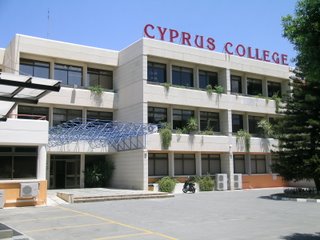
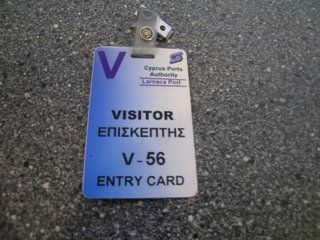
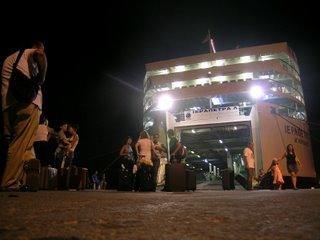
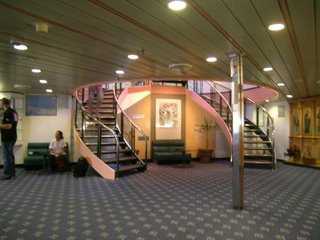
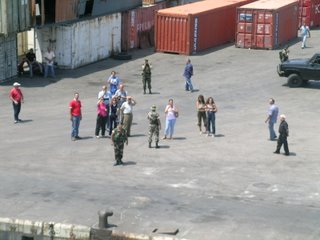



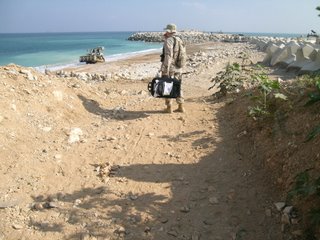 ...for the beachcraft.
...for the beachcraft.

 I'll say this for the military: impressive. Big ships, well equipped soldiers with thick necks. Descending from the manifest desk down to the shore, we were surrounding by binoculars, choppers - high alert. The crippled and bruised evacuees came on board with a sense of relief - finally, there was some strength, some focus...there was some hope. The welcomed sight of the US flag.
I'll say this for the military: impressive. Big ships, well equipped soldiers with thick necks. Descending from the manifest desk down to the shore, we were surrounding by binoculars, choppers - high alert. The crippled and bruised evacuees came on board with a sense of relief - finally, there was some strength, some focus...there was some hope. The welcomed sight of the US flag.
